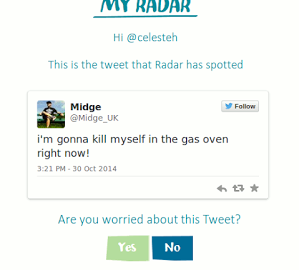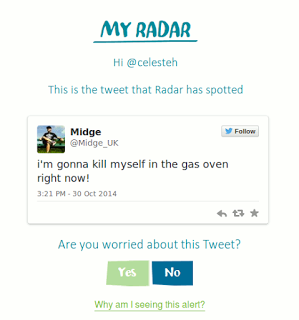These last few days, I’ve run into Twitter storms twice. Once was reported on in a New York Times article, How One Stupid Tweet Blew Up Justine Sacco’s Life. This was a followup on what happened to the woman who tweeted a crass AIDS joke about Africa. I remember the tweet when it happened and the sense of outrage at her apparent racism. What was she thinking?
I don’t remember if I tweeted about it at the time, but I probably did. And today, I tweeted annoyance at Peter Tatchell. Along with 2000 people. To be fair, Tatchell is often a bit annoying. He’s also extremely consistent and has campaigned tirelessly for years. I don’t agree with all of his positions, but he applies them absolutely evenly, treating homophobes exactly the same no matter where they’re from or what the cost to himself personally. He may be wrong some of the time, but he’ also extremely principled.
Sarah Brown and Natacha Kennedy do a good job explaining what the issue is, but let’s leave that aside and talk about twitter. That I happen to agree with the points raised by the 2000 tweeters (or rather, me and 1999 others) is almost beside the point. I entirely disagree with GamerGate and while many or most of those guys just want to intimidate and harass, at least some of them just want to talk about what they find annoying or personally oppressive.
For whatever reason, Twitter seems to lend itself to outrage. There are several possible reasons. The Twitter company has been extremely poor at dealing with trolls, which may have encouraged a certain institutional culture, but I think that’s not it, as the Twitter pile-on effect seems to be non-ideological. I suspect there are two major reasons. One is the brevity required and the other is the extremely poor threading.
Yesterday was my birthday and I have not actually deleted my facebook account. So I logged in to look at an event and found around a hundred messages posted to my timeline. I thought I could take advantage of people cruising by to better advertise the event, but this didn’t work at all. Because people didn’t actually look at my profile. They saw a notification, a chance to leave a very short message and they did so. Along with everyone I’ve ever met. That kind of UI decision distances people from the milieu in which they are operating. They never saw the other messages, including my own post inviting them to a concert. Similarly, I had no idea that I had joined thousands of other people when I was snarky about ‘freeze peach’ at Tatchell. What’s more, the brevity of the medium forced me to distil my snark down from a much longer thought about how he is really consistent about free speech, even if I think sometimes misguided, and how given the context in which he began his activism, this view might make more sense.
Whether or not twitter is actually more prone to pile-ons is something that seems deserving of more research. Could this happen with tumblr, or does the (terrible, but still less bad) threading help put things within a context? Does the longer format help? I’ve seen trolls on Diaspora, especially repugnant MRAs lurking on the feminism tag, so it may be that pile-ons are cross-platform and not a side effect of brevity. However, Diaspora MRAs are certainly aware of their attempts to shout down all feminist discourse and are not stumbling blindly into it the way I think many twitter users seem to do so.
Accounts like @YesYoureRacist exist to point out that casual racism is still very prevalent online. With more than 59000 followers, though, it’s clear that when I make a reply to a racist tweet he’s highlighted, I’m hardly alone. Indeed, I sometimes get ‘likes’ on my replies even weeks later. And these likes bring up a performative aspect mentioned in the times article. I might not realise exactly how many people are tweeting along side me, but I am definitely tweeting publicly. Each of which might reach a few more people, in widening concentric circles of outrage. Each of which is devoid of knowledge of other circles, making it seem like each of us is one of only a few voices crying out in the wilderness, to the acclaim of few, but still to acclaim.
The times article also talks of this direct, public reach of people seeming democratising. But instead it easily becomes mob-like, for a strange sort of mob that may be largely unaware of each other. It is a neoliberal simulacrum of democracy, in which we all think we have something special and unique to say back to whatever has provoked reaction. It’s as if each of us is at the centre of our own little protests. But in fact, we are an avalanche of (often interchangeable) opinion falling upon another unfortunate individual. Worse than not actually being democratic in any meaningful sense, it feels like a way to be heard. It seems like action has been taken, when in fact, one poor sap has been made an example of. It takes each of us less than a minute each to say something snarky, outraged or mean to whatever has come up that day, and then we can move on. If this is a company or a brand and the problem is not complex, this really can be effective at solving the issue. If some shop has stocked a racist children’s toy, for example, the outpouring of thousands of angry tweets will quickly cause an apology. But most of us are not companies.
I probably say at least a dozen idiotic things per day. And since I was raised in a deeply prejudiced culture, some of those things are occasionally fairly awful. In the old days, I was sometimes met with stony silence, realised my error, apologised and tried not to do it again. Call-outs made me a better person. But these days, I’m more socially isolated, tend to spend most days working alone and post my random thoughts to Twitter. I have not yet caused a storm of outrage, although I have said dumb things to some activists who very nicely took the time to point out that I should stop – something they did not have to do and which I appreciate. Their followers did not chime in. One day, though, maybe I’ll try to be funny in too little space, or say something sarcastic that gets stripped of context. Nobody is right all the time, and when it’s my turn to be wrong, how many people will speak up? How many will see it? I once played in a concert in front of other music students and every single person in the audience separately and quietly pointed out my one wrong note.
I don’t want to be the kind of person who blindly joins a mob. I don’t want to cause people to lose their jobs. I’m not even sure I want to always be so brief with expressing my thoughts. I used to complain about political soundbites on the news and now my own words, as if I’m trying to be some kind of celebrity, are often similarly abbreviated. Finally, the near-constant outrage, even when I’m entirely in agreement, is really tiring. How many of us really have anything to say that’s meaningful in that format? We might all have aspirations of being Jenny Holzer, but even she provokes in a way that can’t be responded to so briefly.
I’m not quitting Twitter, but I’m re-evaluating it’s usefulness, especially as a political tool. Although a rather offensive twitter advert claimed that #Ferguson happened there, it really did not. Our engagement with online mediums from our living room is really not being on the street. And, again, this simulation of democracy is ultimately disempowering. Nor was Twitter really any kind of serious force in the Arab Spring. Twitter is ultimately just another for-profit social network, selling our relationships, thoughts and even outrage back to us for a profit.

